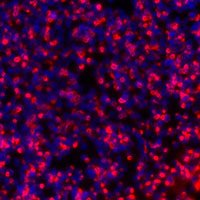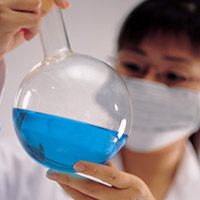iPSC-Neuroscience Scientific Interest Group
Diseases involving the brain that adversely affect cognition, intellectual ability, behavior, mood, memory, perception of reality, and social functioning are exceedingly complex and have no known uniformly effective preventive and therapeutic strategies. Together, they represent a substantial component of the global burden of disease and thus exert a hefty liability on health care. This broad and diverse group of human ailments include neurodevelopmental disorders (e.g., autism spectrum disorder), neurodegenerative diseases (e.g., Alzheimer’s, Parkinson’s, ALS), and neuropsychiatric disorders (e.g., schizophrenia, bipolar disorder, major depression).
Advances in genomics have led to a better understanding of the genetics of these diseases but the critical neurobiological mechanisms involved in pathogenesis remain to be fully defined. Since access to living human brain cells for studies is not feasible, researchers have employed model systems that can recapitulate some aspects of the disorder. One such model is represented by induced pluripotent stem cells (iPSCs) and derivatives, which are renewable cells that carry the full genetic complement of the donor (patient or non-patient).
Cells grown either in a 2D format, or as 3D brain organoids, and more recently, as assembloids, are being extensively used to dissect the biology that underlies genetics, potentially generate new targets for drug discovery and develop methods for cell therapy.
More than a decade ago laboratories here in the Intramural Research Program (IRP) of NIH started to pursue iPSC-based research, several of which were focused particularly on diseases involving abnormalities of brain function. The number of labs engaged in iPSC-based neuroscience research, which encompasses multiple and diverse diseases (see above), in the NIH IRP has grown steadily over the years.
From this perspective, last year, 2022, we decided to form the iPSC-Neuroscience Scientific Interest Group with the following goals:
- To increase and improve interaction between intramural researchers who are engaged in iPSC-based or iPSC-related research, with a particular focus on neuroscience.
- To discuss the many existing and continuing challenges involved in iPSC research and propose approaches and solutions to these challenges.
- To invite NIH IRP researchers to present their iPSC-neuroscience related work.
- To invite investigators who pursue iPSC-based neuroscience research from various universities and institutions here in the US and abroad to present their work and recent findings.
- To mentor graduate students and postdoctoral fellows in the NIH IRP in the iPSC-Neuroscience field.
- To create an NIH listserv.
- With restrictions on social distancing lifted, we plan to hold in-person meetings at least once a year.
To join, contact Sevilla Detera-Wadleigh (deteras@mail.nih.gov) or Francis McMahon (mcmahonf@mail.nih.gov).
Scientific Focus Areas
This page was last updated on Saturday, September 23, 2023


